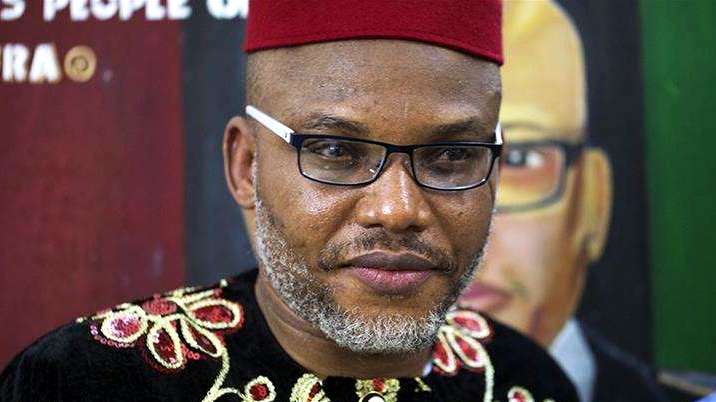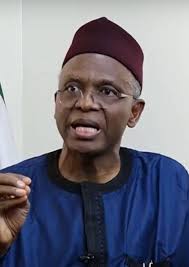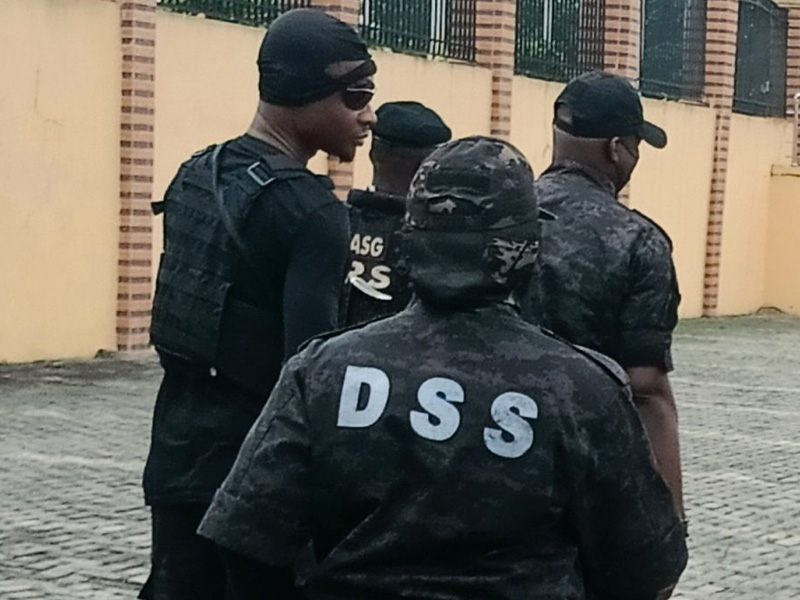Nnamdi Kanu’s Terrorism Trial Intensifies as Prosecution Unveils Incriminating Evidence
Abuja, Nigeria – The ongoing trial of Nnamdi Kanu, the leader of the banned Indigenous People of Biafra (IPOB), escalated on Wednesday at the Federal High Court in Abuja, with Justice James Omotosho overseeing proceedings.
Prosecutors continued to build their case against Kanu, accusing him of terrorism, murder, and inciting violence against Nigerian security forces, presenting a series of documents and recordings aimed at linking him to acts of unrest.
During the session, a key witness identified only as BBB, testifying under the guidance of lead prosecutor Adegboyega Awomolo, resumed his evidence.
BBB referenced a letter from former Attorney General of the Federation, Abubakar Malami, addressed to the Department of State Services (DSS) on June 17, 2021.
The letter, which was admitted into evidence as Exhibit PWF without objection from the defense team led by Kanu Agabi, outlined serious allegations against Kanu.
In the letter, Malami accused Kanu of using his broadcasts to incite violence, specifically instructing followers to target security personnel. BBB read aloud from the document, quoting: “He instructed, through his broadcast, that police and army seen should be brought down and their guns seized and used.”
The letter further detailed how Kanu’s rhetoric allegedly fueled attacks on police stations, correctional facilities, and public infrastructure, resulting in widespread destruction and loss of life.
Adding to the prosecution’s case, the court admitted a written statement from Kanu himself, dated July 17, 2021, in which he informed DSS officials that he had nothing new to add and considered the matter closed.
This document was marked as Exhibit PEG. Despite objections from the defense, a flash drive containing purported recordings of Kanu’s broadcasts was also entered into evidence as Exhibits PWA and PW1.
The courtroom atmosphere grew tense as several audio and video clips from the flash drive were played. One recording, dated December 12, featured a voice identified by the DSS as Kanu’s, speaking from what he described as “the blessed land of Biafra.”
In the clip, Kanu issued warnings against what he called “Fulani domination,” a reference to perceived ethnic tensions in Nigeria. He directed Southeast governors, stating, “No Fulani parading as herdsman shall be allowed in our land,” remarks that prosecutors argued promoted ethnic division and vigilantism.
Even more provocative were excerpts from another video, where the voice—again attributed to Kanu—allegedly urged violent actions. The recordings included calls to “Go and burn down Lagos,” “Set Murtala Mohammed Airport on fire,” “Burn down that Tinubu hotel,” and instructions to “Go into the bush, collect policemen’s guns and kill them.”
These statements were presented as direct evidence of Kanu’s role in inciting terrorism and attacks on state institutions.
Kanu’s defense team, while not objecting to the Malami letter, challenged the admissibility of the flash drive, arguing it lacked proper authentication.
However, Justice Omotosho overruled the objection, allowing the evidence to proceed. The trial, which stems from Kanu’s 2021 arrest and charges under Nigeria’s Terrorism Prevention Act, highlights ongoing debates over separatist movements in the country’s Southeast region.
IPOB, under Kanu’s leadership, advocates for the secession of the Igbo-dominated Southeast as an independent state of Biafra, a cause that has sparked protests and clashes with security forces.
The group was designated a terrorist organization by the Nigerian government in 2017, a label Kanu and his supporters vehemently dispute.
As the trial continues, no date has been set for the next hearing, but legal experts suggest the prosecution’s evidence could significantly influence the outcome.
Kanu, who has been in custody since his extradition from Kenya, maintains his innocence, with his lawyers preparing to counter the allegations in upcoming sessions. The case remains a flashpoint in Nigeria’s broader conversations about ethnic relations, security, and free speech.




